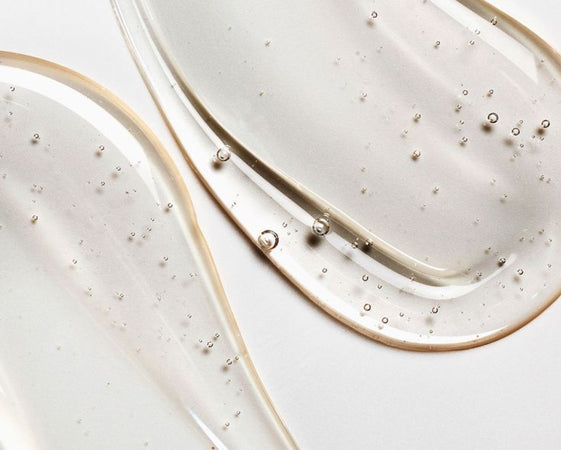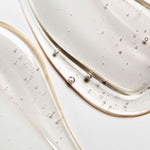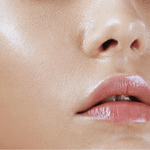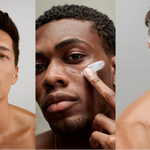EB5 BLOG
Serums 101

You’re not the only one. Serums seem to be the dark horse of the skincare world. We’re here to tell you everything you need to know. It’s time for Serum 101.
You may have a lot of questions about serums and their place in your skincare routine.
“Should I use a serum?”
“When do I apply it?”
“Wait… what is a serum, and why is it so important?”
You’re not the only one. Serums seem to be the dark horse of the skincare world. We’re here to tell you everything you need to know.
It’s time for Serum 101.
What is a serum?
A serum is a highly concentrated skincare product designed to deliver specific active ingredients to the skin.
Simply, it’s a skincare powerhouse.
Serums are typically liquid or gel-based and composed of small molecules that absorb deeply into the skin, making them an ideal product to target specific skin concerns.
Due to the higher concentration of potent ingredients working deeply in the skin, it’s possible to see results faster from serums than other skincare products.
There are many different types of serums that perform different functions. Some include:
- Hydrating
- Skin-brightening
- Exfoliating
- Anti-wrinkle
- Anti-acne
Is a serum the same as a moisturizer?
It’s common to think that a hydrating serum might be able to replace your moisturizer, but the two aren’t interchangeable. Here’s why:
A serum is lighter than a moisturizer and absorbs deeper, quicker, delivering powerful benefits to the skin almost immediately.
Many serums are full of moisturizing ingredients like hyaluronic acid and ceramides, but the quick hit of hydration won’t last without some backup.
A layer of moisturizer will seal in the serum’s potent active ingredients, maximizing their benefits.
How do I add a serum to my routine?
Including a serum in your skincare routine is an easy addition with incredible benefits.
Your new serum-inclusive routine might look like this:
- Cleanser
- Toner
- Serum
- Moisturizer
- SPF (only during the day)
Your serum will always go after cleansing (and toning, if you choose) and before moisturizer, SPF, or hydrating oil.
Another way to think about the order of application is to apply your skincare products from thinnest to thickest, with SPF as the last step in the morning only.
This order allows your skin to absorb each product, sealing in the benefits of thinner products and protecting the skin with a final layer of moisture.
How to use a serum:
After cleansing, dispense a pea-sized amount (or 3-4 drops if your formula comes in a bottle with a dropper) into your hand.
You want to use enough to lightly cover (not coat) your skin. Remember, serums are highly concentrated. A little goes a long way.
Smooth the product over your face and use your fingers to press the serum into your skin. Do not rub or pull.
Allow the serum to absorb fully, then follow with moisturizer.
What serum should I use and when should I use it?
You know what a serum is, why it works, and how to apply it. Now, what to use and when to use it:
The product options are endless, but we can generally classify serums into two categories: daytime and nighttime.
Daytime serums:
These serums provide lightweight hydration and protect the skin from harmful environmental elements.
Daytime serums are applied in the morning, and layer well under makeup because they are not heavy or oily.
They tend to include ingredients like...
- Vitamin C (brightening)
- Antioxidants (protection)
- Peptides (skin-plumping)
Our Vitamin C Serum is a perfect example of a daytime serum designed to brighten skin tone and protect your skin from harmful elements while boosting collagen and replenishing your skin’s health.
Use daily for optimum results.
Nighttime serums:
Your nightly skincare routine is where you can introduce stronger ingredients to exfoliate and hydrate your skin while you sleep.
Many serums designed to fight signs of aging are nighttime serums because their ingredients require time to work absorb and work deep within the skin. Common ingredients like retinol and acids are also reactive to sunlight.
A nighttime serum might include:
- Retinol (anti-wrinkle)
- Acids (hydration and exfoliation)
- Nourishing oils and soothing extracts.
Our Advanced Repair Peptide Serum is the ideal addition to your bedtime skincare routine.
A thin layer hydrates and smooths the skin, helping to reduce the appearance of fine lines and wrinkles. Use nightly to boost collagen and bring a new meaning to “beauty sleep.”
Serums don’t have to be complicated. Add one (or more) into your skincare routine and start loving your nourished skin!












